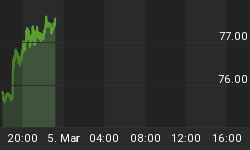
Like clockwork, the ECB met today and generally disappointed participants expectations that Draghi needed to reshape monetary policy to reflect concerns with gathering disinflationary pressures in the eurozone. In as much as we can relate with these very real concerns, we continue to feel that the markets narrow focus within Europe is lacking a bigger picture perspective that may help explain why Draghi's hands are tied for moment - and why the euro should continue to trend higher over the coming weeks.
Paramount to understanding this perplexity is that European monetary policy is formed with a wide peripheral vision to the Fed's leading position on the monetary circuit. This isn't to say that their own considerable sovereign interests are subordinate and secondary to the Fed's and the U.S., but that there is a greater calculus derivative of the zero-sum dynamics that exist between the euro and the dollar.
The fact remains that the Fed was the first to grab the monetary fire-hose years back in 2007 and is also the first central bank to begin withdrawing what became extraordinary monetary support. In order for the Fed to maintain such posture, our own domestic disinflationary concerns need to continue to improve - which for better or worse largely falls at the foot of the dollar. While Draghi surely wouldn't mind a weaker currency in the eurozone, the Fed would certainly be boxed in by a strengthening dollar and re-emergence of disinflationary pressures.
The bottom line these days is that monetary policy is very much a coordinated group effort and that any short-term gains realized by one region would benefit no one in the long run - if the greater efforts failed at the exit. For now, and to the frustration of many in the eurozone, the ECB has continued to sit on their hands. We maintain expectations that the euro will surprise to the upside this year and keep trending into the 140's, while the US dollar index rolls over through the lower region of its long-term range. This window should allow broader reflationary trends to rekindle, which should at the very least permit the Fed to complete its exit of quantitative policy.
But alas, have no fear our friends abroad - we expect the euro's ticket lower should get punched next year.















